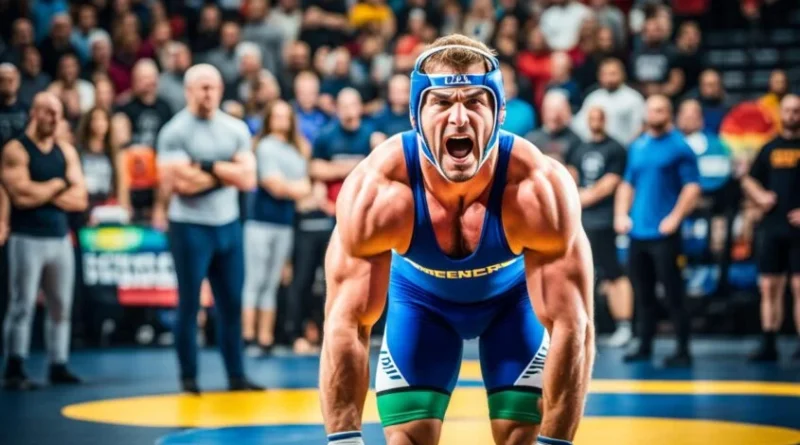Overcoming Mental Challenges on the Mat and Off
Wrestling is a physically demanding sport that requires strength, agility, and technique. However, it is equally important to develop mental toughness to excel in this sport. Mental toughness is the ability to stay focused, motivated, and resilient in the face of challenges. In wrestling, mental toughness can be the difference between winning and losing. In this blog post, we will explore the importance of mental toughness in wrestling and provide tips on how to overcome mental challenges both on the mat and off.
The Importance of Mental Toughness in Wrestling
Wrestling is a sport that puts athletes in high-pressure situations. It requires intense concentration, quick decision-making, and the ability to adapt to rapidly changing circumstances. Without mental toughness, even the most physically gifted wrestlers can struggle to perform at their best.
Mental toughness helps wrestlers maintain focus and composure during matches. It allows them to block out distractions, such as the noise of the crowd or the pressure to win, and stay fully present in the moment. This ability to stay focused can give wrestlers a competitive edge, as it allows them to make split-second decisions and react quickly to their opponents.
Furthermore, mental toughness helps wrestlers bounce back from setbacks. Wrestling is a sport of highs and lows, and even the most skilled wrestlers will face defeats and setbacks. However, mentally tough wrestlers are able to learn from their losses, maintain a positive attitude, and use setbacks as opportunities for growth. They are resilient in the face of adversity and are able to come back stronger after defeat.
Overcoming Mental Challenges on the Mat
On the mat, wrestlers face a variety of mental challenges that can impact their performance. One common challenge is fear. Fear of failure, fear of getting injured, or fear of facing a tough opponent can all hinder a wrestler’s performance. To overcome fear, wrestlers can focus on their training and preparation. By putting in the work and building confidence in their abilities, wrestlers can reduce the power of fear and perform at their best.
Another mental challenge in wrestling is self-doubt. Wrestlers may doubt their abilities or question whether they are good enough to win. To overcome self-doubt, wrestlers can focus on positive self-talk and visualization. By reminding themselves of their strengths and visualizing success, wrestlers can boost their confidence and overcome self-doubt.
Additionally, wrestlers may face mental challenges such as fatigue and frustration during matches. To overcome fatigue, wrestlers can develop mental strategies such as pacing themselves, focusing on their breathing, and staying mentally engaged throughout the match. To overcome frustration, wrestlers can practice staying calm and composed, focusing on the next move rather than dwelling on past mistakes.
Overcoming Mental Challenges Off the Mat
Mental toughness in wrestling extends beyond the mat. Wrestlers face mental challenges in their daily lives that can impact their performance on the mat. One common challenge is balancing academics and athletics. The pressure to perform well in school while also dedicating time to training can be overwhelming. To overcome this challenge, wrestlers can develop time management skills, set realistic goals, and seek support from coaches and teachers.
Another mental challenge off the mat is dealing with injuries. Injuries are a common part of wrestling, and they can be mentally and emotionally challenging. To overcome this challenge, wrestlers can focus on their rehabilitation, stay positive, and seek support from teammates and coaches. By maintaining a positive mindset and focusing on their recovery, wrestlers can overcome the mental challenges associated with injuries.
Lastly, wrestlers may face mental challenges such as burnout and pressure to perform. To overcome burnout, wrestlers can prioritize rest and recovery, set boundaries, and engage in activities outside of wrestling to maintain a healthy balance. To overcome pressure, wrestlers can focus on the process rather than the outcome, set realistic expectations, and remind themselves of their love for the sport.
Conclusion
Mental toughness is a crucial aspect of wrestling. It allows wrestlers to stay focused, resilient, and motivated in the face of challenges. By developing mental toughness, wrestlers can overcome mental challenges both on the mat and off, giving them a competitive edge and enhancing their overall performance. So, whether you are a wrestler or a fan of the sport, remember the importance of mental toughness and its role in achieving success in wrestling.

